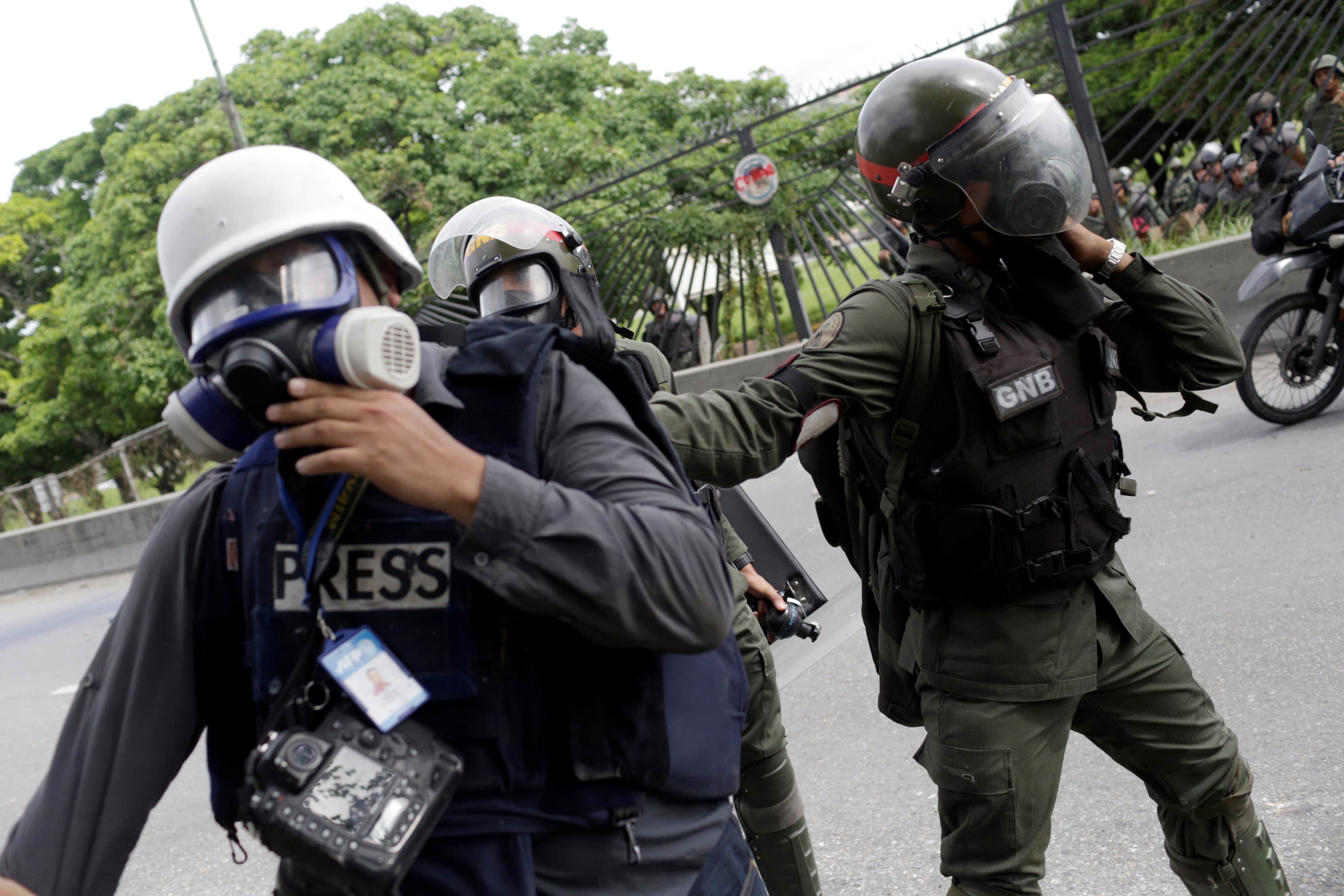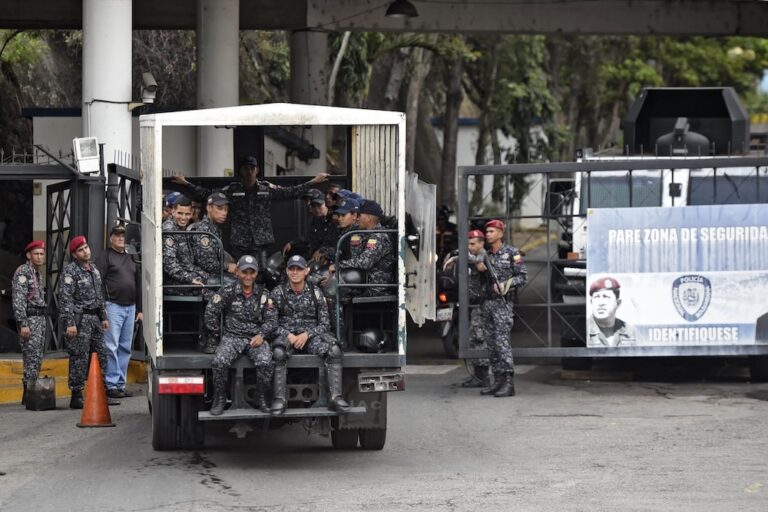Since public demonstrations began in March, there have been over 160 violations of the right to freedom of expression, freedom of the press, and the right to seek, receive and impart information.
RECIPIENTS:
President of the Republic, Nicolás Maduro Moros
Minister of the Popular Power for Interior, Justice, and Peace, M/G Néstor Reverol
Minister of the Popular Power for Communication and Information, Ernesto Villegas
Attorney General of the Republic, Luisa Ortega Díaz
Commander of the Bolivarian National Guard, M/G Antonio Benavides Torres
Director of the National Telecommunications Commission, Andrés Eloy Méndez
9 June 2017
IFEX-ALC, an alliance of 23 organisations in Latin America and the Caribbean that promotes and defends freedom of expression throughout the region, is alarmed at the repeated violations of freedom of expression that have taken place during recent protests in Venezuela.
Throughout the public demonstrations that began in March, there have been over 160 violations of the right to freedom of expression, freedom of the press, and the right to seek, receive and impart information. Between 28 March 2017 and 1 June 2017 these incidents have impacted more than 200 people, including journalists, photojournalists, camera operators and media workers, as well as media outlets. The IFEX-ALC strongly condemns these violations.
Examples of these incidents include physical attacks, equipment theft, evictions of journalists from media zones, threats, arbitrary detentions, the blocking of websites, police surveillance, persecution on social media, closures of radio stations, and most recently, the confiscation of passports resulting in a de facto ban on leaving the country. These attacks have been carried out by government officials, armed civilians, as well as military and civil security forces using an excessive amount of force in a clear violation of international standards of freedom of expression.
Since the beginning of 2017, incidences of websites being blocked, as well as selective and anonymous attacks on independent media and human rights organisations’ servers have revealed patterns in the ways that free expression and the free flow of information are being undermined. This is all happening at a time when the sharing of information has moved predominantly online.
The departure of CNN en Español from cable programming signaled the intensification of harassment against the foreign press and the strengthening of censorship that has prevented reporting on the country’s conflicts. More than 20 journalists have been detained trying to enter Venezuela and others have been deported for working on Venezuelan soil. In addition, the National Telecommunications Commission (Conatel) has maintained pressure and surveillance on the media and social networks, restricting the free flow of content on television, radio, and the Internet.
These setbacks for freedom of information, as well as the spread of disinformation, and the exacerbation of risks to the practice of journalism are examples of the State’s reaction to citizen demonstrations against President Nicolás Maduro’s government .
These incidents are occurring against the backdrop of social crisis and institutional instability. State repression has escalated to include, the excessive and indiscriminate use of expired tear gas bombs against demonstrators and journalists, attacks in residential areas, the arbitrary arrests of protestors and journalists, and most recently the prosecution of demonstrators who are being detained in military courts. The Venezuelan government has also extended the state of emergency, a situation that threatens the full and effective exercise of fundamental rights, including the rights to association, assembly, and expression.
To date, there have been over 1450 protests throughout the country. According to the Venezuelan Observatory of Social Conflict, more than 77 people have been killed in conflicts on the street. Meanwhile, 2815 people have been arrested and of those, 1240 continue to be held and tried before civil and military courts, according to figures from the Venezuelan Penal Forum.
In response to this situation, the IFEX-ALC calls on State powers to:
- Comply immediately with the recommendations by 23 states related to freedom of expression made in Venezuela’s Universal Periodic Review (UPR) at the United Nations’ Human Rights Commission last year
- Cease systematic and violent discourse against the work of journalists and the media
- Prevent and strongly condemn violence against journalists covering street demonstrations and ensure the safety of journalists and netizens when seeking and sharing information
- Promptly and impartially investigate and punish those responsible for incidents against journalists, the media and regular citizens exercising their right to seek, receive, and share information
- Guarantee, without delay, the principles of plurality and diversity in media outlets and digital platforms, and respect the right to information
- Immediately cease actions against the media, and Internet service providers, which can affect the right of citizens to be informed in a relevant, adequate, and timely fashion



